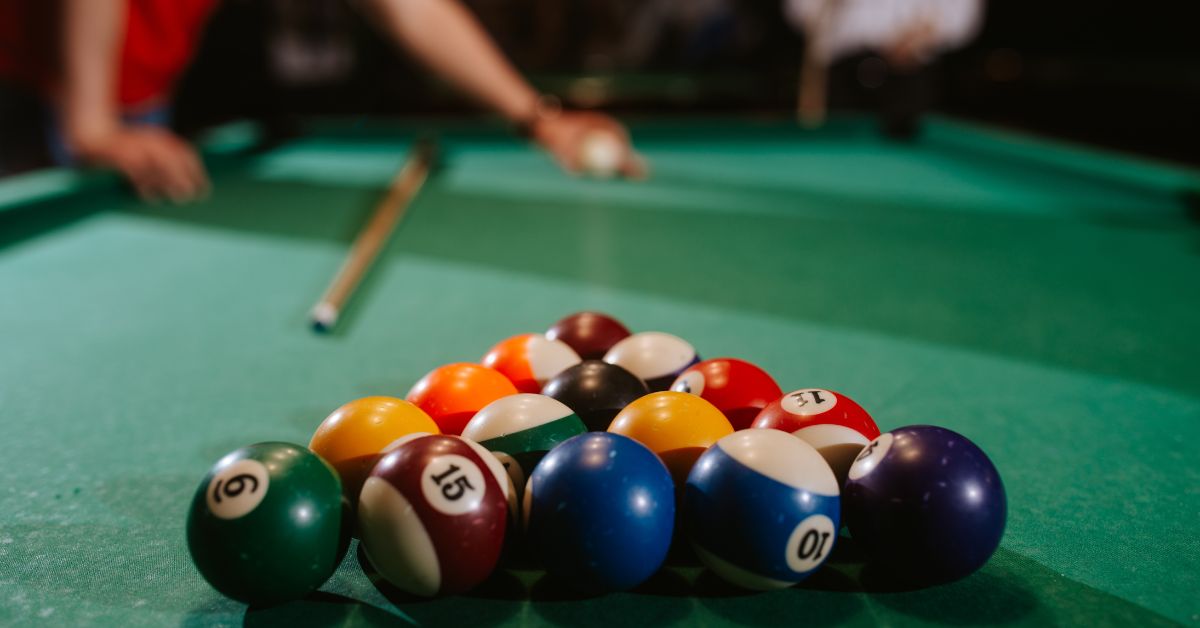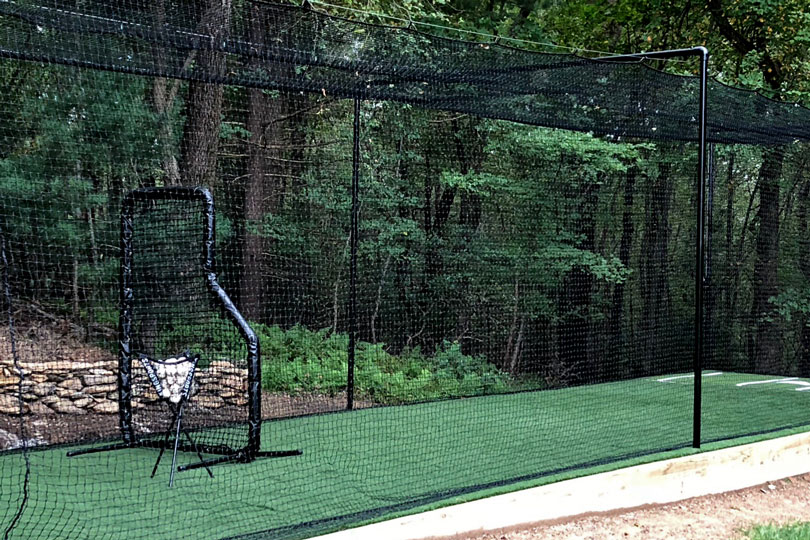Should Parents Worry About New Research Linking Kids’ Mental Health and Individual Sports? | Science
[ad_1]
:focal(800x602:801x603)/https://tf-cmsv2-smithsonianmag-media.s3.amazonaws.com/filer_public/f0/bd/f0bd2fc4-837e-45b2-bc53-300234c723c7/gettyimages-585203751_web.jpg)
A new study displays that little ones who engage in particular person athletics, like tennis, may possibly have much more mental well being concerns than those people that participate in staff athletics or don’t participate in sports activities at all.
Rebecca Nelson via Getty Illustrations or photos
“If only I could play soccer alternatively of tennis,” wrote tennis star Andre Agassi in his autobiography Open in a passage about his childhood, when he was compelled into an early and extreme tennis specialization by his father.
Agassi goes on to reveal his longing for the “stunning video game”:
I get to participate in 3 instances a week at college, and I enjoy managing the soccer area with the wind in my hair, contacting for the ball, recognizing the environment won’t end if I never rating. The fate of my father, of my relatives, of earth earth, does not rest on my shoulders. If my group does not win, it will be the whole team’s fault, and no one particular will yell in my ear. Team sports activities, I decide, are the way to go.
Now, a new research seems to echo Agassi’s childhood summary. The examine, published today in PLoS A single, finds that young ones who played only individual sporting activities, like tennis or gymnastics, tended to experience additional psychological wellbeing difficulties, these as panic and depression or troubles with focus, than peers who performed no sporting activities at all. Children who participated solely in group sports activities, on the other hand, were considerably less probably to encounter these problems than individuals who didn’t perform any activity. Lastly, the children who dabbled in team and person sports were being no extra or considerably less possible than those people who abstained from sport entirely to have psychological well being hassle.
The results are based on a large database that tracked the mental wellbeing and sports activities participation of additional than 11,000 children ages 9 to 13 from throughout the United States—many countless numbers extra than prior studies that have tried using to tease apart the impacts of team versus personal sports activities.
Matt Hoffmann, a sports activities psychologist at California Condition College, Fullerton and the study’s direct author, cautions versus jumping to conclusions primarily based on the results. He claims the analyze displays a sturdy correlation but that it simply cannot tell us what prompted that correlation.
For example, it could be that kids already predisposed to better mental health tend to gravitate towards workforce athletics, or even that their dad and mom have a tendency to steer them that way. Or, it may be that person athletics are extra vulnerable than workforce sports activities to produce conditions wherever a child activities acute nervousness about their performance or possibly their overall look or human body kind.
Hoffmann’s just take is not to advise discouraging youth participation in particular person sports, it’s to motivate mother and father and coaches to be conscious that younger wrestlers, dancers or swimmers may well experience included anxiety or anxiety and to assist them appropriately.
As a researcher, Hoffmann has long been fascinated in how sports activities effect the psychological wellbeing of younger people today, partly mainly because studies have uncovered both equally beneficial and detrimental associations involving mental health and fitness and sports participation in little ones and adolescents.
So, when Hoffmann’s colleagues explained to him they’d obtained accessibility to an enormous trove of info from the extensive-running Adolescent Brain Cognitive Improvement analyze, he suggests it was a natural in good shape to test to examine no matter whether little ones taking part in sports experienced improved psychological wellbeing profiles than those people that didn’t. Thankfully, the data also showed which sporting activities youngsters were playing, letting Hoffmann and his colleagues to individual out group and person sporting activities.
The dataset, which was unveiled in 2020 and didn’t involve any observations made during the pandemic, lined 11,235 small children and adolescents from 22 spots across the U.S. The details arrived from the dad and mom and guardians of the young children, who were asked to assess their child’s mental well being employing what is called the “baby behavior checklist.”
The checklist contains much more than 100 products unfold across 8 possible mental health and fitness troubles. For every the paper, these issues are anxious/depressed (e.g., “fears doing bad”), withdrawn/frustrated (e.g., “rather be alone”), somatic issues (e.g., “nightmares”), social complications (e.g., “unliked”), thought issues (e.g., “hears things”), focus troubles (e.g., “acts as well young”), rule-breaking actions (e.g., “lacks guilt”), and aggressive actions (e.g., “attacks people”).
The knowledge also displays which sport or sports activities the children performed, making it possible for the scientists to divvy them up into four groups: those people who played only staff sporting activities, only person sporting activities, equally crew and person sports, or no sports activities at all. Finally, the study bundled a whole of 17 distinct sporting activities comprising 9 staff and 8 person pursuits.
Analyzing these information disclosed that, as opposed to young children who did not engage in sporting activities, involvement in workforce sports activities was linked with 10 p.c reduce stress and anxiety and despair scores, 19 % reduce withdrawn and frustrated scores, 17 percent reduce social problems scores, 17 per cent lessen assumed troubles scores and 12 percent decreased focus complications scores.
For individuals included only in unique sporting activities the scores went in the opposite path: 16 percent better stress and anxiety and depression scores, 14 percent higher withdrawn and depressed scores, 12 % larger social difficulties scores and 14 % greater scores on interest issues in comparison to their peers who played no sporting activities.
Youngsters who performed crew and unique sporting activities showed no sizeable big difference in their parent-claimed mental well being when compared to those who did not take part in sports.
Hoffmann claims the final results have been a surprise mainly because of the litany of papers showing the psychological and bodily added benefits of taking part in sports activities. “Going into this examine, we expected that participating in any sport, even an personal sport, would confer some reward when compared to participating in no sporting activities at all,” he states.
Catherine Sabiston, a athletics psychologist at the College of Toronto who wasn’t associated in the investigation, writes in an electronic mail that she’s not entirely amazed to see the results on person sporting activities. “Individual sports activities are inclined to be judgement-dependent, weight-focused, normally appearance-heightened sports activities that heighten social comparison, competitiveness and person striving,” she writes. “There is no one to ‘blame’ or ‘thank’ other than you, and the pressure to complete is heightened.”
As for what the mothers and fathers of a kid in appreciate with tennis or gymnastics can do to secure their young competitor’s mental wellness, Hoffmann implies preserving open up lines of conversation is the very best defense. He states often examining in to make confident a child’s worry levels are reasonable and that they are experiencing their experience with a activity is a excellent put to commence. “You really don’t want to think young children are enjoying an activity just for the reason that they hold undertaking it,” he says. Athletics, Hoffmann says, can also provide a beneficial avenue for introducing the topic of psychological well being to a kid.
An additional strategy is to inspire participation in a wide selection of things to do, whether it is other sports or encouraging artistic hobbies and academic curiosity. Hoffmann advises versus attempting to flip kids into specialists too early, as Agassi’s father did and which performed a obvious hand in the star participant declaring about and above in his autobiography that he hates tennis.
Rochelle Eime, a behavioral epidemiologist at Victoria University in Australia who wasn’t associated in the research, details out that the study’s reliance on parental reports as opposed to asking the little ones them selves could final result in over or below reporting the subjects’ psychological overall health struggles. But if a mother or father is anxious about their child experience anxiety or melancholy related to their participation in an specific sport, she states examining in on the values and ideas of why they are playing can aid. “It’s essential that [the kids] have reasonable goals and that the emphasis is on enjoyment and enhancement, as opposed to solely on winning,” states Eime. She adds that when older people in a child’s life are preoccupied with good results and profitable, little ones can internalize that and start to location additional and far more pressure on their athletic performances.
In the upcoming, these results may well be strengthened or forged in a unique gentle when the Adolescent Mind Cognitive Improvement review, which will continue to monitor these youngsters as they mature up, releases far more data. Hoffmann also states that for the reason that the information in the present review shows which precise sports kids were playing, he and his colleagues could consider to drill down to see which athletics have the best association with adverse or favourable psychological health—though he notes people conclusions would be significantly weaker for the reason that of the scaled-down sample dimensions in the hundreds as opposed to thousands.
“This analyze has a substantial sample sizing, and that definitely strengthens its findings,” states Jennifer Agans, a developmental psychologist at Pennsylvania State University who was not concerned in the analyze. “But this analyze appears to be at averages, and no child is actually typical. So, if your child looks prone to these forms of mental wellness difficulties, or is seriously drawn to specific athletics then these benefits really should really encourage you to converse to them routinely and retain a watchful eye out. But if your child loves wrestling, allow them wrestle!”
Advised Video clips
[ad_2]
Source backlink



